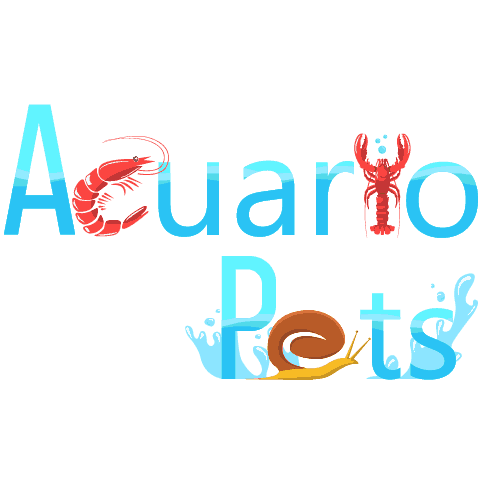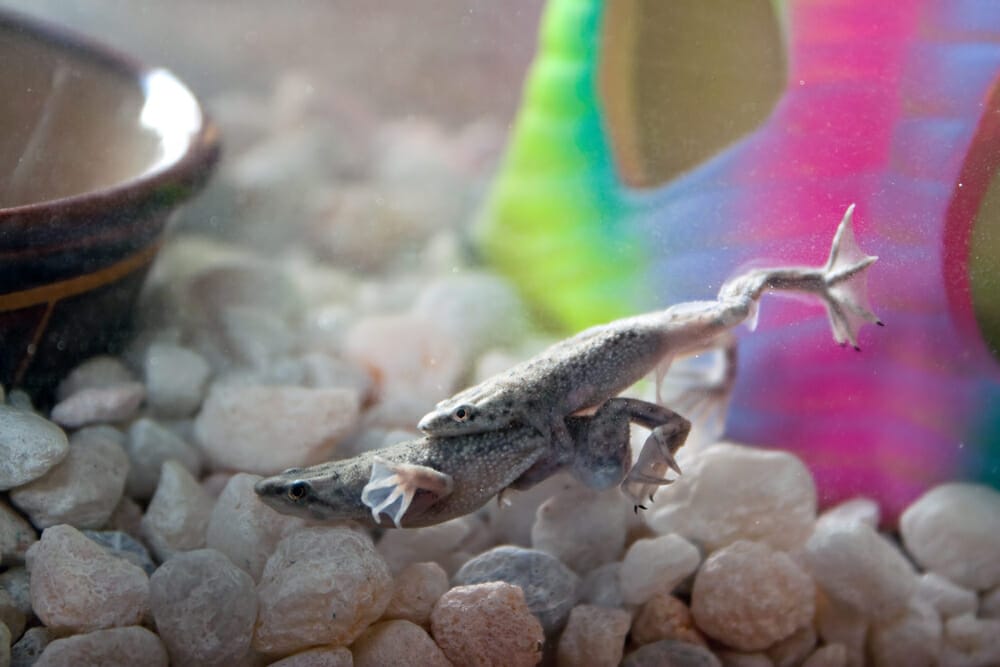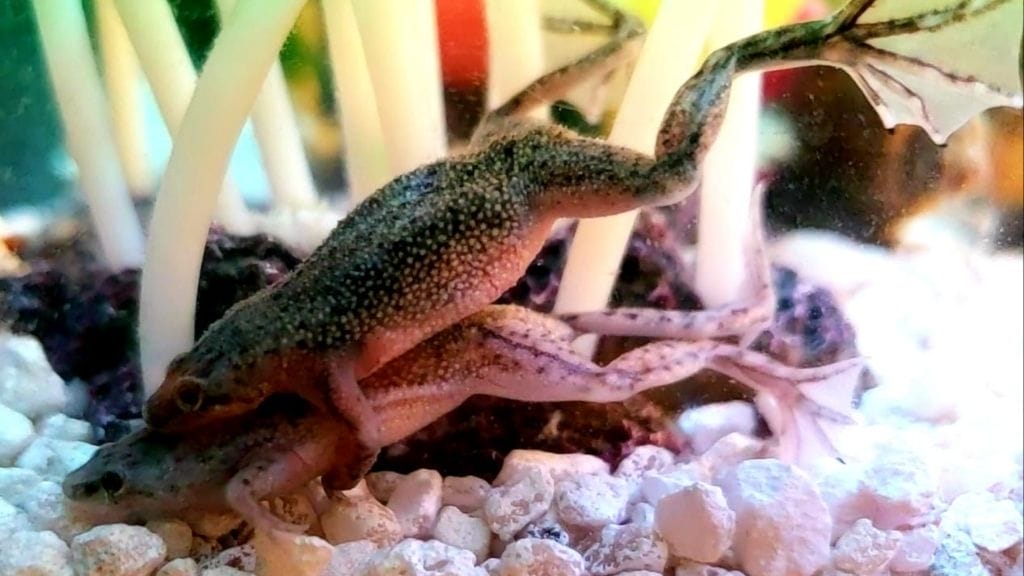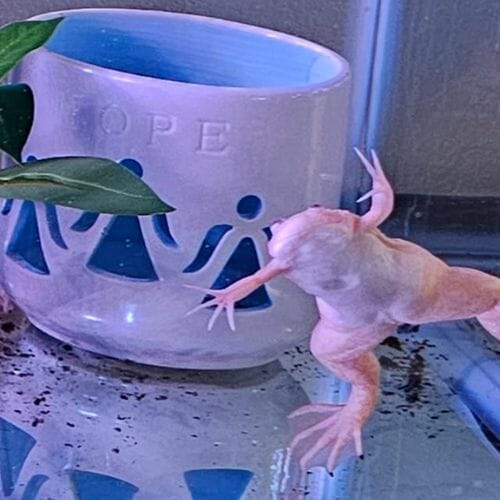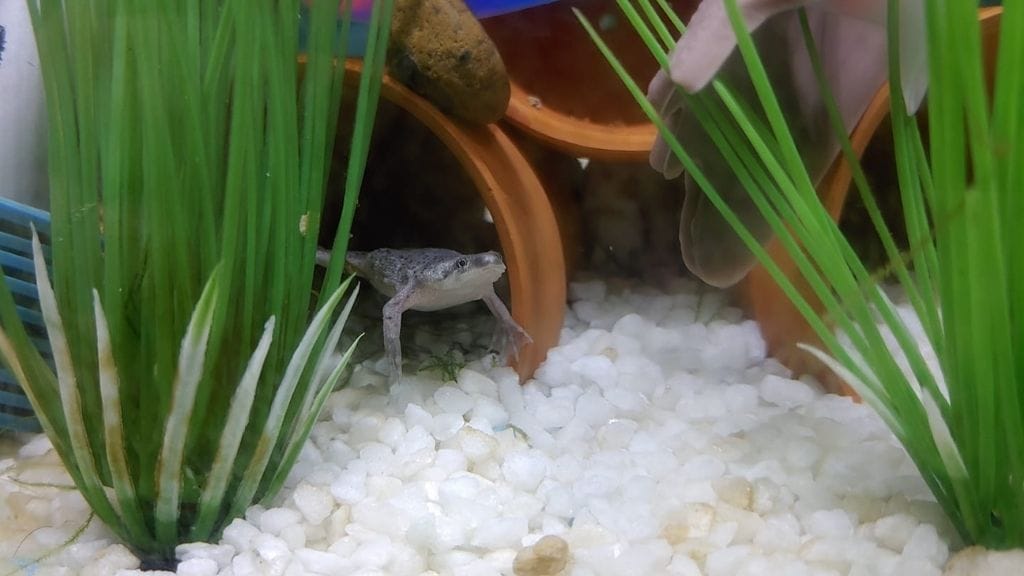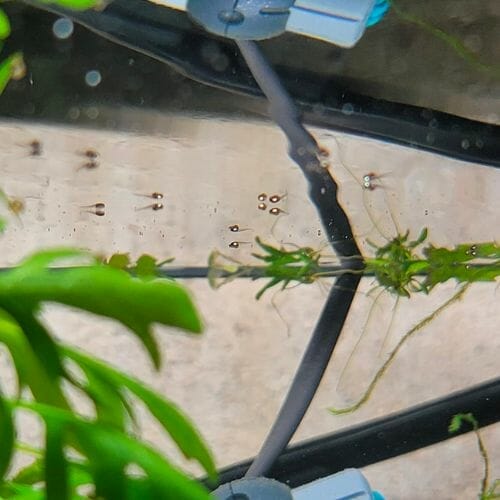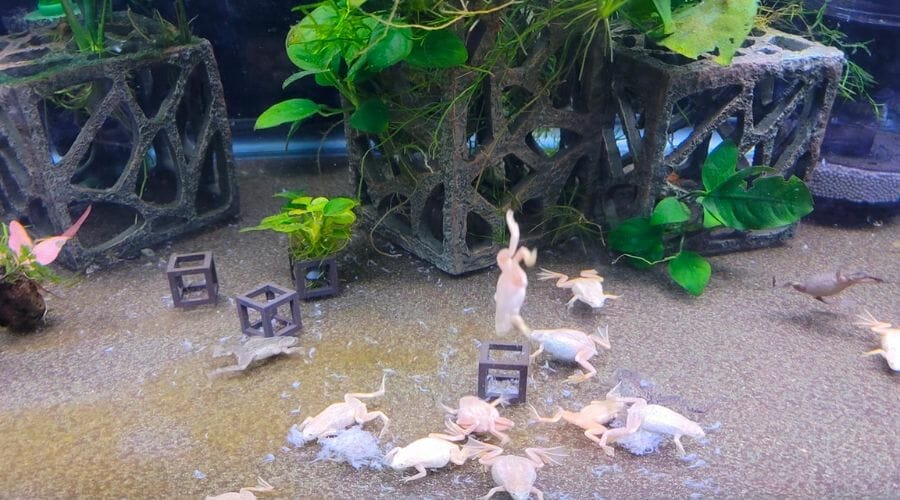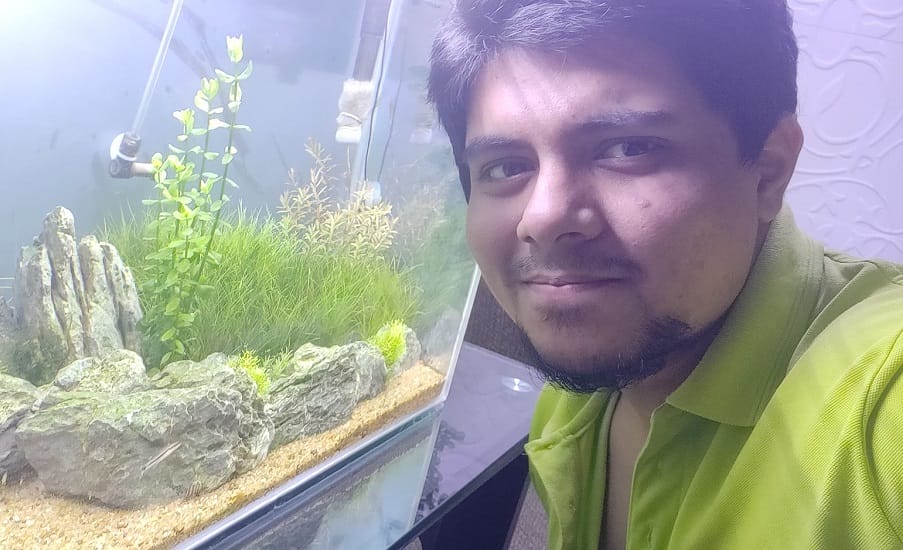African Dwarf Frog Diet & Feeding Guide [Interesting Facts]
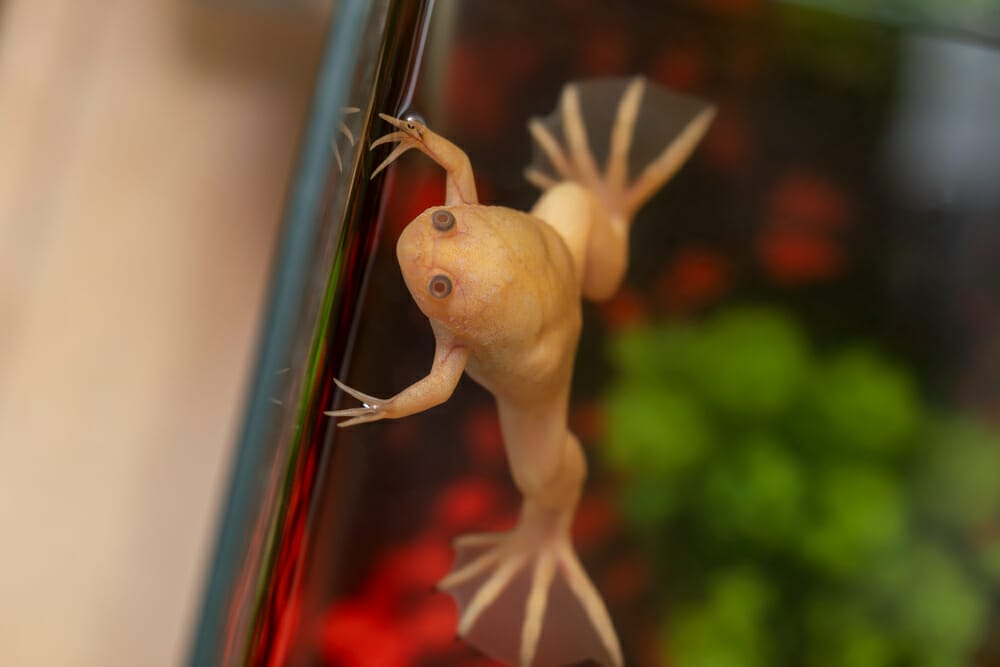
Diving into the world of African Dwarf Frogs has been a joy. With their playful antics, understanding their unique dietary needs is crucial.
African Dwarf Frogs (ADF) are carnivorous. Their diet includes frog pellets, bloodworms, brine shrimp, daphnia, and tubifex worms. In captivity, feed juveniles daily and adults every other day. Offer a variety of foods for balanced nutrition. Ensure food is appropriately sized to prevent choking. Monitor health and adjust feeding as needed.
So, in this article, I have shed some light on the proper diet, best foods, and detailed feeding guide of African dwarf frogs. If you are keen to know details, you should go through this article.
Key Takeaways
- African Dwarf Frogs (ADF) are carnivorous. Their primary diet includes frog pellets, bloodworms, brine shrimp, daphnia, and tubifex worms.
- Juveniles should be fed daily, while adults should be fed every other day.
- Offering a mix of foods ensures balanced nutrition. It’s essential to ensure the food is appropriately sized to prevent choking.
- Due to their poor eyesight, ADFs might struggle to find food. Techniques include letting food sink to the bottom, cutting frozen worms into small pieces, or hand-feeding using tools like tweezers.
- Overfeeding can lead to obesity in ADFs, which can cause health issues. It’s essential to monitor their health and adjust feeding accordingly.
What Should I Feed My African Dwarf Frogs?
As African dwarf frogs grow up, they prefer meat and protein-enriched foods. So, there are varieties of food choices for your African dwarf frogs.
Let’s see first what foods African dwarf frogs can eat depending on their age.
| African Dwarf Frogs According To Their Age | Foods |
|---|---|
| Newly Hatched Tadpoles (From 10 days old) | Plants, algae, etc. |
| 3-4 weeks old tadpoles | Plants, powdered eggs, boiled lettuce, spinach, ground goldfish food, etc. |
| 5-9 weeks old tadpoles | Insects alongside plants |
| Tadpoles over 12 weeks | Introducing meats |
| Baby And Adult African Dwarf Frogs | Fully carnivore diet, such as worms, insects, fish, and so on. |
It is a blessing that African dwarf frogs are not picky eaters. In a word, African dwarf frogs usually eat anything smaller than their size.
You can feed any type of smaller fish, larvae, worms, snails, insects, etc, that fit in their mouth. Moreover, in captivity, you can feed them commercial frog pellets.
After doing researches for a while, I have prepared a list of African dwarf frog foods. These foods are-
- Small crustaceans
- Bug larvae
- Mosquito larvae
- Brine shrimps
- Bloodworms
- Blackworms
- Earthworms
- Tubifex worms
- Mealworms
- Night-crawlers
- Algae wafers
- Krill
- Aphids
- Various types of flies
- Small insects
- Fish flakes
- Small live fish ( the fish must be smaller than tadpoles)
- Commercial frog foods
- Fish food pellets
You should keep in mind that the regular food of African dwarf frogs should be pellets. So, you can provide the worms, beef hearts, etc as their occasional treats.
How Many Pellets Should I Give My African Dwarf Frogs?
You can feed pellets regularly to your African dwarf frogs. Also, you must ensure that the pellets sink to the bottom of the tank.
In each meal, you should give three to five pellets to each of your African dwarf frogs. If the pellets seem large for your African dwarf frogs, you can grind them up a bit.
When you go buying pellets for your African dwarf frogs, you can look for the products labeled as frog pellets, frog and tadpole pellets, etc.
I have found out some best pellets for your African dwarf frogs. If you want to know the details, you should check out the following chart.
| Pellets | Characteristics |
|---|---|
| Omega One Frog And Tadpole Pellets | Sources of marine proteins, low fibered, low in carbohydrates. |
| Zoo Med Aquatic Frog And Tadpole Pellets | High in protein and other nutrients |
| Aquatic Frog Bites And Sinking Pellets | Soft textured, abundant in minerals and vitamins, enriched in proteins. |
Click the name of the pellets to know detailed information about the products.
Feeding Techniques: What Is The Best Way To Feed An African Dwarf Frog?
Feeding your African dwarf frog is the hardest task of keeping as a pet. As these frogs see everything almost blur, they struggle to find the food.
Hence, the owners often remain worried about whether their frogs are eating or not.
Thus, I have collected some feeding techniques from several experienced owners. If you are interested to know the best ways to feed an African dwarf frog, you should check out the following techniques.
- Generally, the owners leave the foods in the tank. When the pellets sink, these will remain at the bottom.
- As African dwarf frogs are opportunistic eaters, they will eat those foods after noticing them.
- In cases of frozen worms, cut them into small pieces. Then, you should bury a block of these worms into the substrate or sand.
- When African dwarf frogs notice the worms, they will eat them.
- Also, you can feed your African dwarf frogs directly. For this, you can train your frog.
- When you give a signal before offering food, your frogs will learn to come to the front of the tank. Then, you can feed them with turkey basters or tongs.
- Besides, you can feed your African dwarf frogs with the help of tweezers or a pipette.
- Due to poor eyesight, sometimes African dwarf frogs can not find the foods at the bottom.
So, bring the pellets with the tweezer into the mouth and let go of the food. However, you should use this method especially in the case of frozen foods.
How Often Should I Feed My African Dwarf Frogs?
This question is pretty hard to answer. Each owner prefers to follow their techniques to feed pet African dwarf frogs.
However, all animals tend to continue eating until they are full. On the other hand, African dwarf frogs get fat pretty fast because of overeating. So, as an owner, you must keep their food quantity in a limitation.
| Age of African Dwarf Frog | Feeding Frequency | Suggested Food |
|---|---|---|
| Tadpole | 2-3 times a day | Tadpole food, algae wafers |
| Juvenile (up to 6 months) | Once a day | Small frog pellets, brine shrimp, daphnia |
| Adult (6 months and older) | Every other day | Frog pellets, bloodworms, brine shrimp, daphnia |
In the case of adult African dwarf frogs, you should feed your frogs at least three days a week. But, because of the rapid growth, African dwarf frogs’ tadpoles and baby dwarf frogs require frequent feeding.
On another note, if you want to know the details of the beginner’s guide, you can check the African dwarf frog egg and baby care.
As they grow older, you have to reduce the feeding time.
Besides, you should keep a track of fifteen minutes and let them eat as much as they can at this time. But, some owners suggest giving them only 2-3 minutes to finish eating.
Since these frogs are slow eaters, you should give them a little time. Not to mention, you must cut the foods into small pieces so that these frogs can eat the foods easily.
I have made a chart pointing how often to feed your African dwarf frogs according to their age. You can check out the following chart to get a clear idea.
African Dwarf Frog Feeding Schedule
In addition, you can make a list of the feeding schedule of your African dwarf frogs. Here’s an example feeding schedule for an African dwarf frog:
For Juvenile African Dwarf Frogs (up to 6 months):
| Day of the Week | Feeding Time | Suggested Food |
|---|---|---|
| Monday | Evening | Small frog pellets |
| Tuesday | Evening | Brine shrimp |
| Wednesday | Evening | Daphnia |
| Thursday | Evening | Small frog pellets |
| Friday | Evening | Brine shrimp |
| Saturday | Evening | Daphnia |
| Sunday | Evening | Small frog pellets |
For Adult African Dwarf Frogs (6 months and older):
| Day of the Week | Feeding Time | Suggested Food |
|---|---|---|
| Monday | Evening | Frog pellets |
| Tuesday | – | No feeding |
| Wednesday | Evening | Bloodworms |
| Thursday | – | No feeding |
| Friday | Evening | Brine shrimp |
| Saturday | – | No feeding |
| Sunday | Evening | Daphnia |
The feeding time is set to the evening, but you can adjust it based on your convenience and the frog’s activity pattern.
Should I Feed African Dwarf Frogs At Night?
As African dwarf frogs are nocturnal, the owners remain confused about the feeding time.
It doesn’t matter whether you feed your African dwarf frogs at night or in the daytime. You can pick any suitable time to feed your pet frogs. Although African dwarf frogs are nocturnal, you can make them familiar with eating in the daytime.
However, being nocturnal animals, African dwarf frogs remain active at night. Also, this is the natural feeding time of ADF in the wild. So, if you have no issue, you can feed your pet dwarf frogs at night. It will stimulate the natural environment.
Otherwise, you can feed them in the morning, evening, or whenever you like. Your pet African dwarf frogs will get accustomed to the feeding schedule. Besides, it will not make any difference with feeding at night time.
Can You Overfeed African Dwarf Frogs?
Yes, African Dwarf Frogs (ADF) can be overfed. Overfeeding can lead to several health issues and can also negatively impact the water quality in their habitat.
Here are some things to consider:
Obesity: Just like any other animal, African Dwarf Frogs can become obese if they are overfed. Obesity can lead to other health issues and can reduce the frog’s lifespan.
Water Quality: Overfeeding can result in uneaten food decaying in the tank. This decay can lead to a buildup of ammonia, nitrites, and nitrates, which can be harmful or even fatal to the frogs. It’s essential to maintain clean water in the tank and remove any uneaten food after feeding.
Feeding Frequency: Adult African Dwarf Frogs typically need to be fed every other day or 3-4 times a week. Juvenile frogs, being more active and growing, might require daily feeding. However, the amount of food should be monitored closely.
Amount of Food: A general guideline is to feed them only as much as they can consume in about 15 minutes. After that time, any uneaten food should be removed from the tank.
Signs of Overfeeding: If you notice your frog has a bloated belly or if there’s a lot of uneaten food at the bottom of the tank, you might be overfeeding.
Digestive Issues: Overfeeding can also lead to digestive issues. If a frog is fed too much, especially if the food is not varied, it can lead to constipation or other digestive problems.
Why Won’t My African Dwarf Frogs Eat?
If your pet stops eating, it may be a clear sign of sickness. But, there can be several reasons which are responsible for this. Before you start worrying, let’s check out the probable reasons why your African dwarf frogs may not be eating.
1. Adjusting In New Tank
Showing no interest in foods is pretty common for newly arrived African dwarf frogs. Generally, it takes some time for any pets to adjust themselves to a new environment.
Also, your African dwarf frogs may feel shy to eat in the new tank. Hence, your new dwarf frogs are not eating. Otherwise, African dwarf frogs are good as pets with no hassles for the new owners.
2. Wrong Tank Mates
Many pet lovers want to keep multiple pets together. If an African dwarf frog owner wants to keep tank mates, the owner must check the temperament.
You must have known that these frogs are friendly, peaceful, and docile. If you are still unsure of their friendly nature, you should click here to know the level of their aggression.
So, if you keep aggressive tank mates with dwarf frogs, your frogs will feel stressed. Due to stress, they might stop eating.
Besides, African dwarf frogs can not outcompete other fish for foods as they are pretty slow eaters. Thus, wrong tank mates might snatch away the foods of your African dwarf frogs.
However, choosing suitable tank mates is essential to ensure the good health of any pet. So, if you want to know some suggestions for this, you can check out the best suitable tank mates for African dwarf frogs.
3. Their Stomach Is Fulfilled
If your African dwarf frog is not eating, there may not be anything to worry about. The reason may be not being hungry. Because of being scavengers, African dwarf frogs tend to eat often from the bottom. Thus, these frogs may remain full. So, they are not eating.
4. Sickness
A sick frog will show a common sign of sickness with less appetite. If your dwarf frog is not eating, it may be sick.
How Long Can African Dwarf Frogs Go Without Eating?
Sometimes you might need to go out of home for several days. Hence, it’s a common concern for the owners to know how long African dwarf frogs can go without eating.
African dwarf frogs can go without eating for around 2-3 days at a time. Starving 2-3 days will not affect severely on their health. Moreover, in case you want to know the limitation, you can keep these frogs without food for up to 4-5 days.
But, you should not keep them without food intentionally. It will affect a bad impact on health.
What Do I Do If My African Dwarf Frogs Aren’t Eating?
You can take a look at the following suggestions if your African dwarf frogs are not eating. These are-
- Sometimes, their tank mates finish the frog food before ADF gets a chance to eat. In such cases, you have to remove those tank mates first. Only ghost shrimp is an exception.
- You can start placing foods on a specific spot daily. It will help them locate the food as these frogs struggle to see a bit. Also, many experienced owners suggest using a terra cotta plate.
- You can train your African dwarf frogs to denote a specific feeding time. For example- you can tap the tank 2-3 times before feeding them. Your pet frogs will learn quickly that it is their mealtime.
- However, you should keep offering them food. African dwarf frogs can survive 3-5 days without eating. So, take some time to notice the positive changes in your pet frog.
Can I Feed My African Dwarf Frogs Betta Food?
No, African Dwarf Frogs have different dietary needs than bettas. While they might eat betta food if offered, it’s not nutritionally complete for them.
They primarily need a diet of live or frozen foods like bloodworms, brine shrimp, and daphnia. It’s essential to provide them with the proper frog-specific food for optimal health.
Can African Dwarf Frogs Eat Fish Flakes?
Yes, African Dwarf Frogs can eat fish flakes, but they should not be their primary food source. It’s essential to provide them with a varied diet that includes live or frozen foods like bloodworms, brine shrimp, and daphnia.
Fish flakes can be an occasional supplement, but not a staple. Ensure proper nutrition for optimal health.
What Human Foods Can African Dwarf Frogs Eat?
African dwarf frogs prefer a meat-based diet. So, you can feed the human foods, including fish and animal meats to your pet frogs in small pieces.
You can feed raw fish in small pieces as tuna steak, salmon, tilapia, shrimps, etc. Also, you can give your frogs frozen beef hearts, chicken, etc.
Make sure that the foods are small in pieces. As African dwarf frogs do not have teeth, these frogs need to swallow the foods.
It’s essential to ensure that any human food given is free from additives, seasonings, or other chemicals that could be harmful to the frogs.
Do African Dwarf Frogs Need A Feeding Station?
A feeding station is a specific spot where the owners put food for their pets. Then, their pets eat the food from that station.
African dwarf frogs do not need any feeding stations. These frogs are bottom feeders. They tend to roam around and eat anything from the bottom of the tank. Besides, these frogs are scavengers.
So, you need not worry about putting a feeding station for your African dwarf frogs. Your frogs will manage to catch their prey by themselves. However, you can hand-feed your dwarf frogs.
Foods To Avoid For African Dwarf Frogs
Although African dwarf frogs can eat almost everything, some foods are harmful to their health. For the safety and good health of your African dwarf frogs, you should avoid certain foods. Such as-
- Larger foods
- Fast disintegrating foods
- Wild bugs
- Leftover human foods or table scraps
- Harmful insects like millipedes, stinkbugs, praying mantis, etc.
Are African Dwarf Frogs Hard To Feed?
African dwarf frogs are hard to feed. These frogs are extremely slow eaters. Besides, if you keep your African dwarf frogs with the wrong tank mates, your frogs can not outcompete them for food.
But, if you choose proper feeding procedures, it will not be too hard to feed them. Also, choosing suitable tank mates will help let African dwarf frogs eat comfortably.
What Do African Dwarf Frogs Eat In The Wild?
African dwarf frogs eat all types of living, dead, or dying animals. Since African dwarf frogs are scavengers, they love to eat the organic matter decomposed by other organisms.
In the wild, African Dwarf frogs eat any foods that fit in their mouth. These frogs remain herbivores until they grow hind legs and tails. But, the adult tadpoles and grown-up African dwarf frogs survive upon eating small fish, small crustaceans, snails, larvae, worms, etc.
However, the adult African dwarf frogs become carnivores fully. Also, they do not hesitate to eat anything as they are opportunistic eaters.
Do African dwarf frogs eat meat?
Yes, African Dwarf Frogs (ADF) are carnivorous and primarily eat meat-based foods. In the wild, they feed on small invertebrates, insects, and other tiny aquatic creatures. In captivity, their diet typically consists of the following meat-based foods:
- Frog Pellets: These are specially formulated for aquatic frogs and provide a balanced diet.
- Bloodworms: These can be offered either live, frozen, or freeze-dried. Bloodworms are a favorite among many ADFs.
- Brine Shrimp: Another favorite, brine shrimp can be given live or frozen.
- Daphnia: Also known as water fleas, daphnia are tiny crustaceans that are a good food source for ADFs.
- Tubifex Worms: These can be offered live, frozen, or freeze-dried. However, they should be given in moderation as they can be fatty.
- Small Insects: Some keepers offer small insects like flightless fruit flies to their ADFs.
Do African dwarf frogs eat live plants?
African Dwarf Frogs (ADF) are primarily carnivorous, so they do not eat live plants for nutrition.
However, they might occasionally nibble on plants or algae in the tank, especially if they are hungry or curious. This nibbling is usually not harmful to the plants, and the frogs don’t consume significant amounts of plant matter.
If you have live plants in your ADF tank, it’s essential to ensure that the plants are safe for aquatic animals and do not have any chemicals or pesticides that could harm the frogs. Some popular plant choices for ADF tanks include Anubias, Java Fern, and Java Moss.
Final Words
It is a must-to-do responsibility to ensure a balanced and nutritional diet to keep your dwarf frog healthy. Besides, learning feeding techniques will help you feed your pet frog. I hope, this article enlightened you properly about the African dwarf frog diet and feeding guide.
About Author
Hello, I’m Muntaseer Rahman, the owner of AcuarioPets.com. I’m passionate about aquarium pets like shrimps, snails, crabs, and crayfish. I’ve created this website to share my expertise and help you provide better care for these amazing pets.
Disclaimer
This site is owned and operated by Muntaseer Rahman. AcuarioPets.com is a participant in the Amazon Services LLC Associates Program, an affiliate advertising program designed to provide a means for sites to earn advertising fees by advertising and linking to Amazon.com. This site also participates in other affiliate programs and is compensated for referring traffic and business to these companies.
